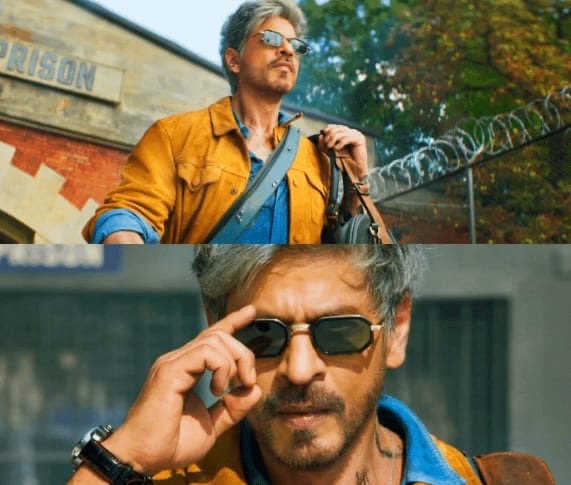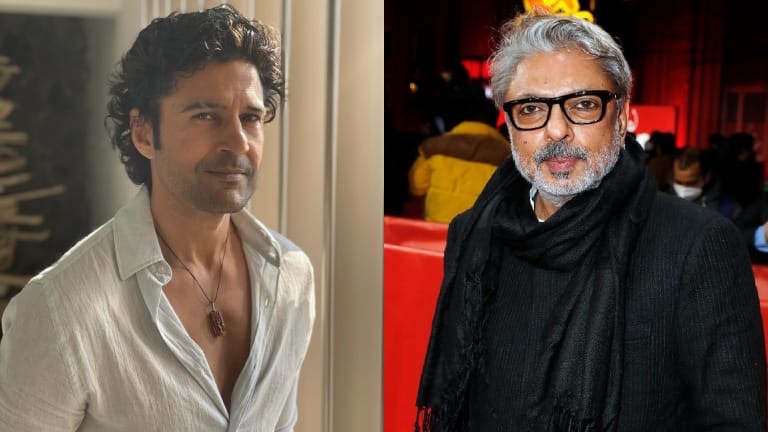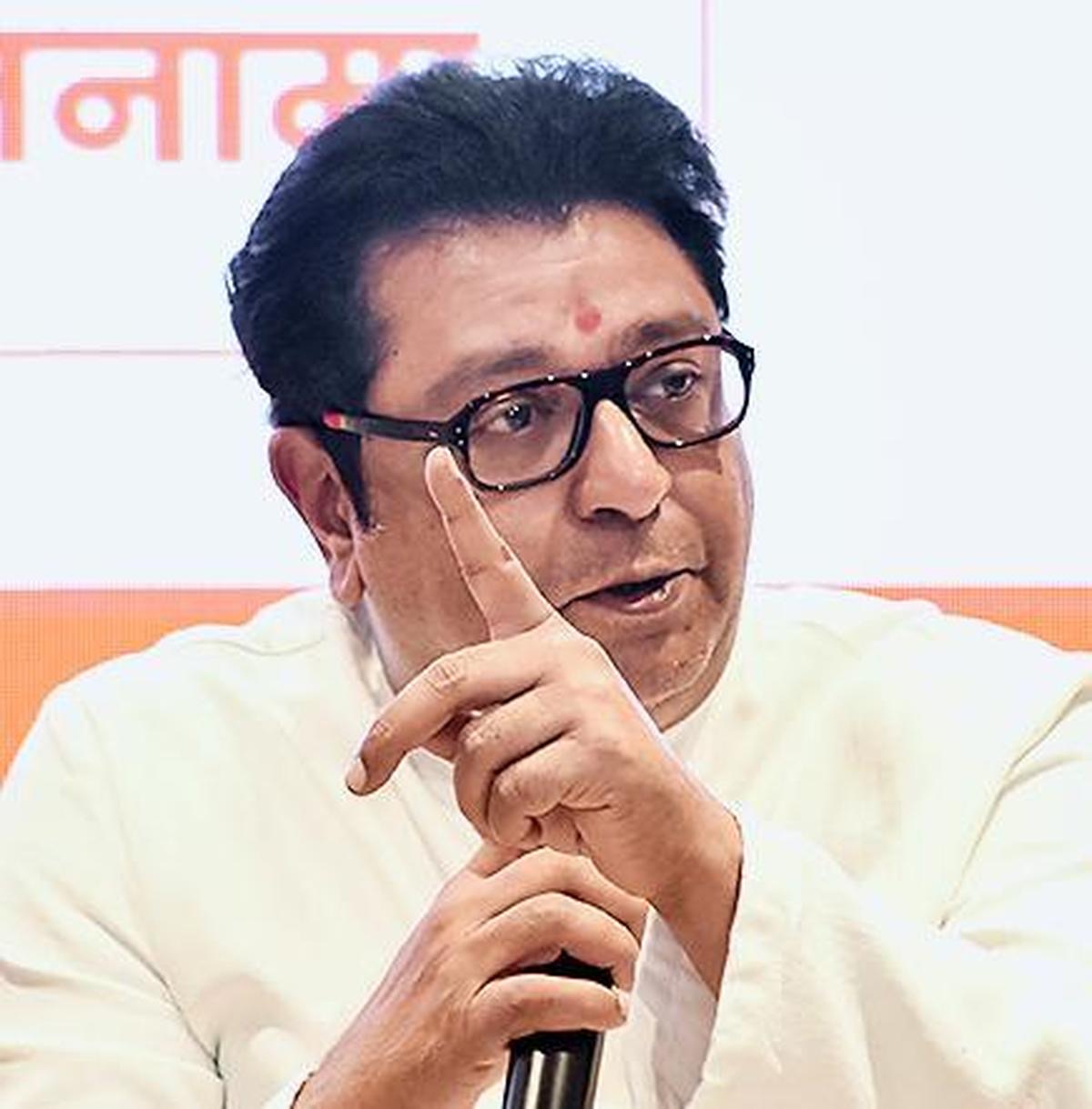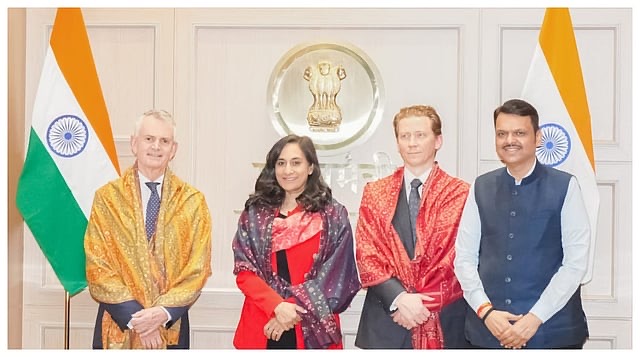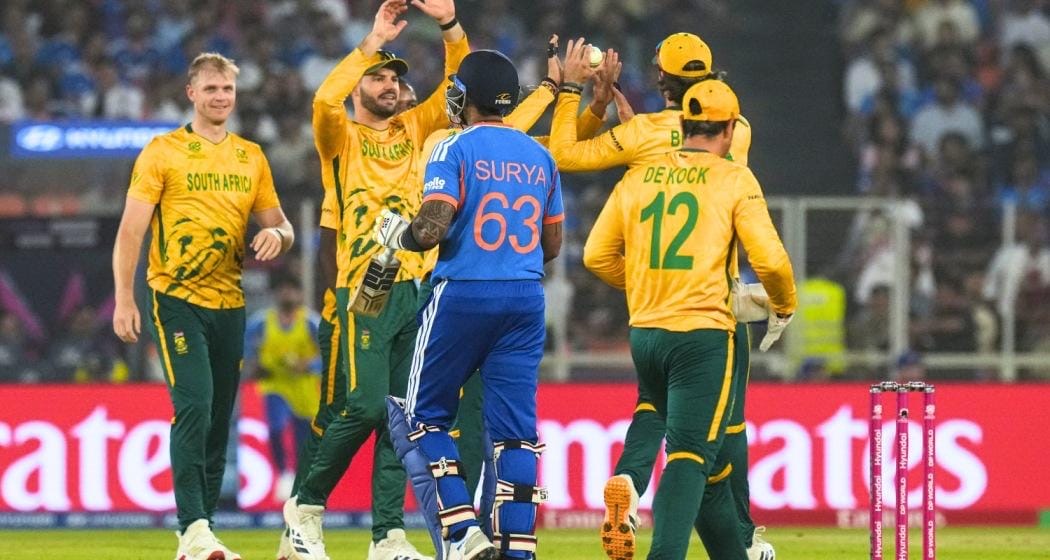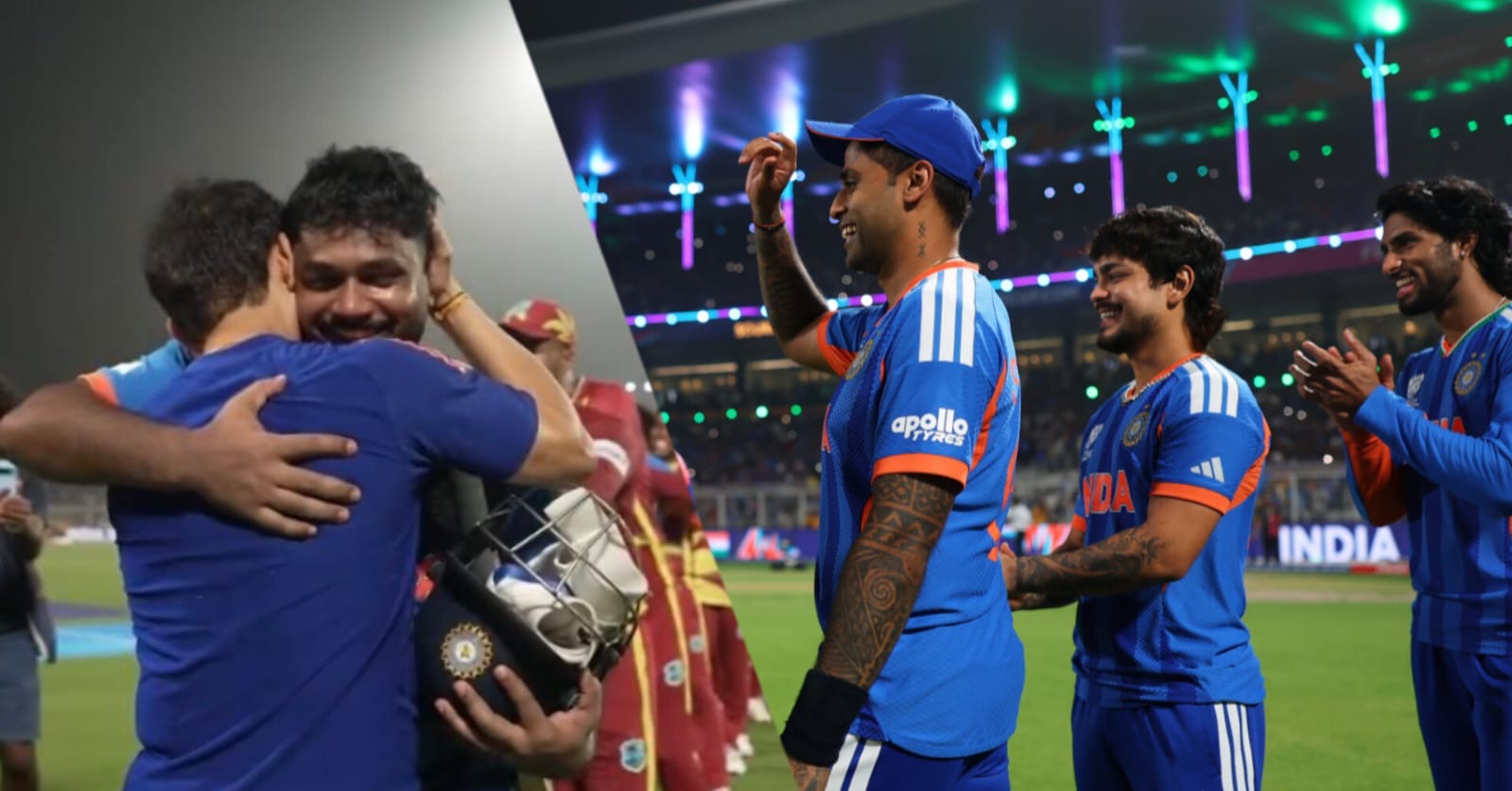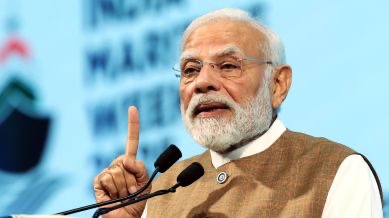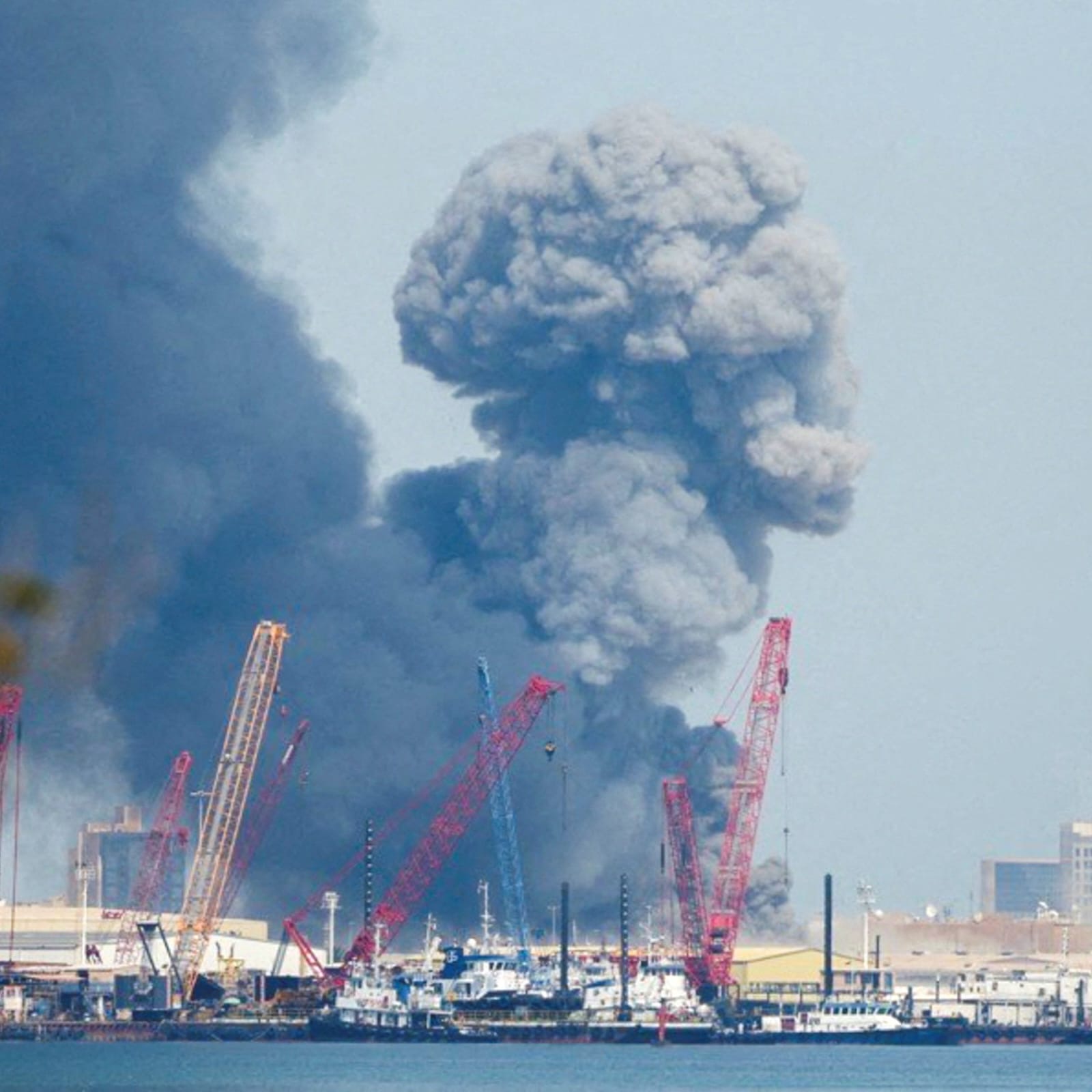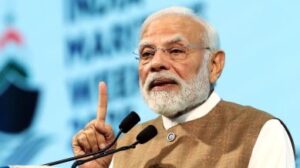
PM Modi on Wednesday 29 October said that while highlighting India’s progress in the maritime domain and the recent reforms in maritime laws, and that India can play the role of a steady lighthouse amid global tensions.
Adding When the global seas are rough, the world looks for a steady lighthouse. India can play that role very strongly. Amid global tensions, trade disruptions, and shifting supply chains, India stands as a symbol of strategic autonomy, peace, and inclusive growth,” he said, batting for the India–Middle East–Europe Economic Corridor. “It will redefine trade routes and promote clean energy and smart logistics.”
He was speaking at the NESCO ground, addressing the Maritime Leaders’ Conclave at the India Maritime Week in Mumbai. He also met the CEOs of major port and logistics companies.
Amidst the event, the PM launched initiatives for shipping and ship-building worth ₹2.2 lakh crore, which includes the acquisition of 437 vessels. Several MoUs in sectors like port-led industrialisation, port development, sustainability and ship building have been signed in the midst of the India Maritime Week, in a bid to promote shipping as core infrastructure.
This is the fourth edition of the summit. PM Modi said that in 2016, the maiden India Maritime Week was held in Mumbai itself. Today, it has emerged as a global summit.
85 countries have participated in it today. This itself sends a very big message. Shipping giants, start-ups, policy makers, and investors are all present here,” adding that the MoUs showed the confidence of the world in India’s maritime capabilities.
The Prime Minister also said that many of India’s ports were performing better than those in the developed world. “We have replaced more than a century-old colonial shipping laws with modern, futuristic laws suited for the 21st century. Today, India’s ports are counted among the most efficient in the developing world. In many aspects, they are performing even better than those in the developed world. India is accelerating efforts to reach new heights in shipbuilding. We have now granted large ships the status of infrastructure assets.
PM Modi highlighted the key achievements of the Indian ports in the year 2024-25, adding that India’s major ports have handled the highest cargo volumes ever this year. He said that the capacity of the major ports had nearly doubled, that there was substantial reduction in turnaround time, and cruise tourism had also seen great strides. He added that cargo movement on inland waterways has increased by over 700 percent, with the number of operational waterways rising from three to thirty-two.
.
Speaking of Vizhinjam Port, India’s first deep-water international trans-shipment hub now operational, he said every Indian felt proud after the world’s largest container vessel recently arrived there. “For the first time, an Indian port has launched a megawatt-scale indigenous green hydrogen facility at Kandla Port. Another major milestone has been achieved at JNPT, where Phase 2 of the Bharat Mumbai Container Terminal has commenced. This has doubled the terminal’s handling capacity, making it India’s largest container port,” he said.
The PM said the country had scrapped colonial shipping laws to put in place next-generation reforms in the maritime sector and reduce government intervention for the facilitation of ease of doing business. The new laws are meant to empower State Maritime Boards, strengthen safety and sustainability, and expand digitization in port management.
“The Coastal Shipping Act has been designed to simplify trade and strengthen supply chain security. It ensures balanced development along India’s extensive coastline. The One Nation, One Port Process will standardize port-related procedures and significantly reduce documentation requirements,” he said.
The Prime Minister called for collective action to address challenges like climate change, supply chain disruptions, economic uncertainty, and maritime security.
After the address, PM Modi met the CEOs of prominent logistics and shipping companies and ports. They included Robert Maersk Uggala, chairperson of the board, AP Moller-Maersk; Sultan Ahmed bin Sulayem, group chairperson, DP World; Karan Adani, MD Adani Ports and SEZ; Soren Toft, CEO, Mediterranean Shipping Company (MSC); Ludovic Renou, senior vice president, Global Experience Network (CMA – CGM).
PM Modi also announced that an investment of ₹70,000 crore in the sector to enhance domestic capacity, promote long-term financing, support the development of greenfield and brownfield shipyards, build advanced maritime skills, and generate jobs for the youth, he said, “India has granted infrastructure asset status to large ships, a policy decision that will open new avenues for all shipbuilders. This will provide new financing options, reduce interest costs, and ease access to credit.”
News Edit KV Raman


